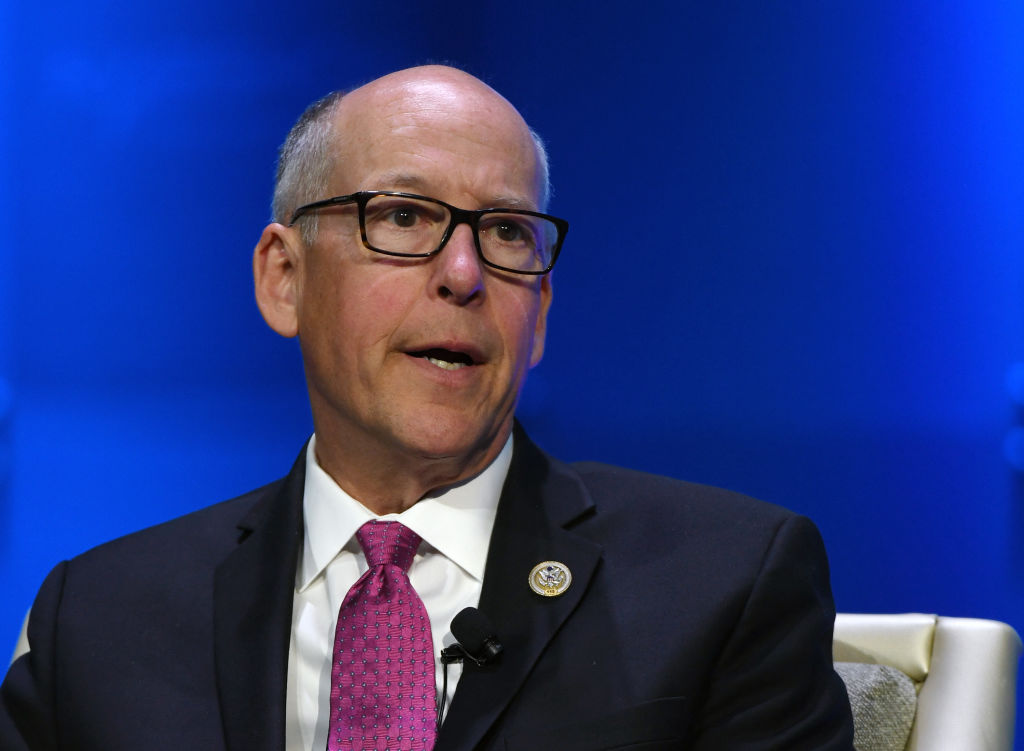The Independent Show: Former Congressman Gives Advice on How To Win Broadband Funding
Former House Energy & Commerce chair Greg Walden asks small ops to build partnerships with state legislators

The smarter way to stay on top of the multichannel video marketplace. Sign up below.
You are now subscribed
Your newsletter sign-up was successful
LAKE BUENA VISTA, Florida — With more than $40 billion in federal funding available through state agencies for rural broadband expansion, most small cable operators are hard pressed to know how to navigate the bureaucratic quagmire. But one former Congressman has a simple answer — get to know the decision-makers.
The federal government is making about $42.5 billion in rural broadband grants available to companies through the Broadband Equity, Access and Deployment (BEAD) program, which will be administered through several states. At the Independent Show Tuesday session “Uncle Sam’s Broadband Bucks, Who’s Holding the Purse Strings,” and moderated by outgoing ACA Connects CEO Matt Polka, former Rep. Greg Walden (R-Ore.) suggested that to win those funds, small operators are going to have to learn how their state government machinery works.
“[E]ach state is going to be a little different, some will be better staffed and ready for this money,” Walden said. “You’re going to have to work and get to know who makes those decisions in your state and how do you take advantage of it.”
That means not just getting to know the heads of the state agencies that distribute funding, Walden added, but local and state legislators as well, who can be supportive in dealing with the various bureaucracies involved with each application.
“The extent to which you can build partnerships when you go in, [is] probably the better,” Walden said. “Most elected officials don’t like to choose among their children, so if you can move up, you’ll have a stronger case to make and they will too to whoever is going to make the decision in the state.”
Legislators on both the federal and state side also will have to work hard to ensure that funds go to the right companies, adding that stringent oversight was not a hallmark of past federal programs. But he was encouraged by the current BEAD structure.
“This is a much better statute,” he said.
The smarter way to stay on top of the multichannel video marketplace. Sign up below.
Stricter oversight could be in store for the House Energy & Commerce Committee, which Walden chaired for six years before retiring on January 3, 2021. With expectations that there will be big turnover in Congress after the 2023 midterm elections, Walden was confident that friendly ears will abound in the House.
“Watch for Congress,” Walden advised, adding that typically the party in power loses 26 seats in Congress after its first midterm election.
“If your president has more than a 50% approval rating that number changes to 14 seats, if it’s less than a 50% approval rating that’s 36 seats,” he continued. President Biden’s current approval rating is about 38%.
“So I would look for a change of control, which means Republicans will take over,” Walden said.
Walden also had some advice for operators who are considering applying for grants to build out broadband services.
“I would find out what your state has, if they have any kind of broadband buildout plan already, so they already have an idea about what they want to do,” Walden said. “I would also watch for other unmet needs.”
Walden added that in some large rural states, governors are worried about the overall lack of communications infrastructure in their states and could use the lure of broadband money to improve that.
“They are going to try to leverage this to improve communications overall,” Walden said. “I think, especially in the big rural states, the Montanas, the Wyomings, they are really struggling to get adequate communications one way or another.” ■
Mike Farrell is senior content producer, finance for Multichannel News/B+C, covering finance, operations and M&A at cable operators and networks across the industry. He joined Multichannel News in September 1998 and has written about major deals and top players in the business ever since. He also writes the On The Money blog, offering deeper dives into a wide variety of topics including, retransmission consent, regional sports networks,and streaming video. In 2015 he won the Jesse H. Neal Award for Best Profile, an in-depth look at the Syfy Network’s Sharknado franchise and its impact on the industry.

